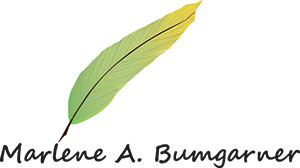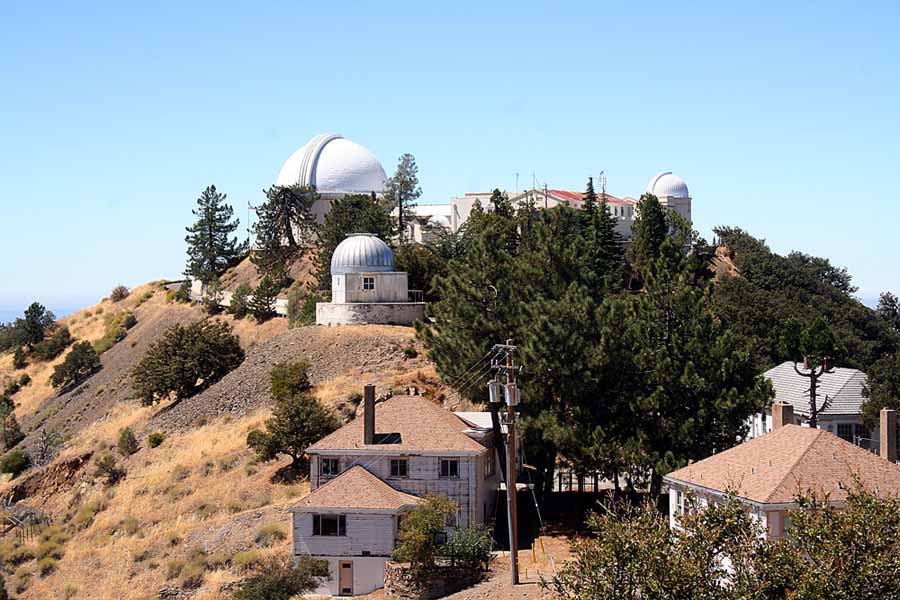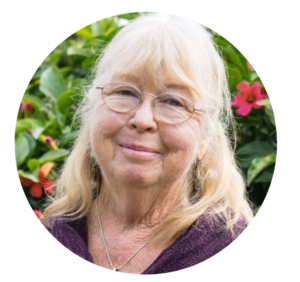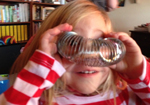PART ONE — MOVING TO THE LAND
Introduction
It was November 1973 and my my mother-in-law wasn’t speaking to me. Again. My husband, John, I and our 11-month-old daughter Doña Ana were living in a basement room in his parents’ home at Lick Observatory on Mount Hamilton, an hour’s drive up a winding road from San Jose, California. That afternoon, Bea had entered the kitchen just as her granddaughter began rubbing mashed banana into her hair. I sat, studying, beside the high chair, grateful for these few moments of peace. Blonde hair falling out of the scarf she’d tied loosely around her head, Bea muttered a few choice words about my parenting and the state of the kitchen floor, then carried Doña away for a bath.
“How would you like to move to the country?” John asked that night, as he took off his coat and hung it on a kitchen chair.
Turning abruptly from the stove, I stared at him.
“You know I would. Tell me more.” Ever since reading Little House in the Prairie as a teenager I had dreamed of being a pioneer. After the banana episode, pioneer life sounded pretty good.
John worked as a computer programmer at a Electromagnetic Systems Laboratory, in Sunnyvale, over two hours away, and it was 9:00 p.m. by the time we had this conversation. He was exhausted from his commute, and I was tired from picking up Doña’s toys, washing the kitchen floor, cleaning her high chair and all the cabinets and other furniture that she had touched that day with her inquisitive, sticky hands. I served his meal, then collapsed beside him at the table.
“A guy I work with at ESL – he’s called Quincy – was roaming the halls this afternoon,” he said between bites of meatloaf, “asking everyone he met if they’d like to go halves on ten acres of land.”
“Where is it?”
“It’s in South County, above Chesbro Reservoir. In the hills west of Morgan Hill, about 40 minutes from work.”
He dove back into his meal. When he came up for air, he pushed his hair behind his ears, scratched his beard, and stretched his long legs.
“Quincy hasn’t seen the property yet. A high school friend of Dorrie’s – that’s his wife – called to say her dad was selling a remote plot of land cheap to pay off some debts. It doesn’t have any electricity or telephone, but it does have a shared well and a road.”
John wiped his plate clean with a piece of French bread and I reached for it.
“Thanks, love. You know I appreciate you cooking for me so late.” Before I could grab his plate he pulled me into his lap. We smooched. Between John’s commute and our lack of privacy, caresses were a rarity these days. He laced his hands together across my waist so I couldn’t escape. Before he arrived I had changed out of my spit-up-soaked house-cleaning clothes into a Liberty print granny dress I’d bought in Cornwall, and I draped the skirt over his legs now in what I thought was an attractive pose. My dangly earrings tinkled and tangled in my long red hair as I wriggled to get comfortable. “So when can we see this property?”
“Dorrie is keen to see the land this weekend. They’re going to drive there on Saturday and meet the owner. Should we tag along? It might be just what we’re looking for.”
“Seems a bit crazy,” I replied, unlacing his hands, clambering to my feet and putting his plate in the dishwasher, “partnering with a couple we don’t even know.” I watched him gulp the pink grapefruit juice I’d poured into a tall glass. He looked weary, and his eyes were shuttered. This living arrangement was wearing on us both.
“No crazier than taking a baby to Africa,” he quipped, grinning. The previous summer we had flown to England with eight-month-old Doña to join a friend of John’s and others from the British Astronomical Association on a ship from Liverpool to the eclipse path just off the coast of West Africa. It had been an amazing astronomical adventure that included a visit to drought-damaged Mauritania followed by a flight back to Washington D.C. where we had been living, then a cross-country drive in our VW bus. Doña had been fussed over by everyone on the ship, staff included, and adapted well to the time and scenery changes. She was a natural traveler.
“I can’t disagree with you there. It wouldn’t be the craziest thing we’ve ever done.” We had a history of spontaneous decisions. Like the night of the lunar eclipse when we sat on the roof of our Pinto watching the moon disappear and John decided he wanted to transfer to the astronomy program at San Diego State. A month later we sold our house and drove south with three cats: no jobs, nowhere to live, and no college acceptance. Fortunately, because San Diego was booming, it had worked out.
However, we’d been out of the local housing market now for four years and in our absence property values had risen. We’d bottomed out our savings account traveling to Africa and the proceeds from the sale of our house fell considerably short of what we needed to purchase a home in Sunnyvale.
We’d also learned that due to a change in state legislation, after September 15, 1974 I would no longer be able to apply for an elementary teaching credential with the Bachelor’s degree I’d earned before we left California. We’d been living in one room all semester while I attended classes at San Jose State two days a week to meet the deadline. John’s mother, the principal and only teacher at Mount Hamilton School, supervised my student teaching on the other three days. In two weeks our daughter would turn a year old, and six weeks later the Fall semester would end. The credential required that I complete two semesters of student teaching, in different settings. I needed a placement at another school.
We both hated the idea of living in an apartment, and in three months of looking, we hadn’t found a rental house we could afford within driving distance of John’s office. Neither of us wanted to raise our child in a congested, traffic-ridden community, which pretty much defined a fifteen-mile radius around Sunnyvale, in 1973 already being called Silicon Valley. But we couldn’t stay here. John’s mother and I had totally different views about child rearing. I believed in giving babies lots of freedom; Bea was big on structure and rules. In spite of that, she and I were together in the classroom three days a week, we prepared and ate our meals together, and we sat in front of the TV each night with my father-in-law waiting for John to come home.
John loved his job, but was exhausted by the daily commute and frustrated that his wife and his mother weren’t getting along. I was heartsick at the nightly images and sounds of the Vietnam War and protest rallies that our baby was subjected to from the nightly news broadcast John’s parents insisted on watching. The stress was affecting my breast milk supply.
We talked of other things for a while, then went for a walk before retiring. John had worked as a guide at Lick Observatory for several years, and had shared with me his love for the historic domes and the observational equipment they housed. The total darkness that made Mount Hamilton a good site for an observatory also meant we could see the Milky Way and other celestial formations clearly as we walked along the road.
John had introduced me to the sky on our first date, six years earlier. After dinner and a Kirk Douglas movie, he had driven to a popular make-out spot and actually shown me the stars. I was 17 and was accustomed to boys my age having only one thing on their mind, and it wasn’t constellations. After I got over my shock, I found 26-year-old John, recently out of the Air Force, far more interesting. We talked until midnight. He planned to be an astrophysicist and hoped to work for NASA some day.
When I asked him to show me Orion’s belt and the Pleiades, John had apologized for the June sky as if it were his fault. “Neither the Orion Nebula nor the Pleiades star cluster is visible at this time of year,” he’d explained, pointing out Ursa Major and Minor instead. I couldn’t tell which stars he was pointing at so he drew lines in the sky: Ursa Major, the Great Bear, was right side up and Ursa Minor, the Little Bear, was upside down.
By the time John delivered me to my parents’ front door with a chaste kiss, I was hooked. We were married a year later. After we completed our Bachelor’s degrees, we drove to New Mexico State University in Las Cruces for graduate school. I dreamed of being the next Margaret Mead, but we soon discovered that the Anthropology program we’d heard so much about was at the other university, the one in Albuquerque. Upon learning there were no upper division courses in Anthropology at NMSU, I settled for six units of Educational Psychology and a secretarial job. John studied Astronomy, of course. His financial contribution was the GI Bill. Two years later, when things didn’t work out for him, we moved to Washington, D.C., where Doña was born.
As we walked that night on Mount Hamilton, I thought about the house we’d left behind in Las Cruces. It had five spacious rooms, a deck where John had installed his Questar telescope, and a large yard, which I had filled with vegetables and flowers. I didn’t want to move to the desert at first, but fell in love with the small town. It would have been a wonderful place to raise a child. I mourned for the life we had planned there, hadn’t yet forgiven John for abandoning his doctoral program.
I had given up an Anthropology fellowship so he could go to NMSU, then I left my Ed Psych degree unfinished to travel east. I was still feeling resentful about those two uprootings. Perhaps a new start would help. I so badly wanted to create a cozy home for our daughter. John seemed to believe we could build one on this piece of property. By the end of our walk, I wanted to believe it, too.
The next day was sunny and bright. As I drove Doña to my mother’s, where she stayed while I attended classes, I felt hopeful. I sang This Land is Your Land, This Land is Our Land, and allowed myself to dream of a future in the country.
That morning, I had watered the herbs in Bea’s kitchen window box. While I fed her thirsty plants, I had imagined our little girl in the country with a watering can, or feeding chickens, rabbits and goats and helping me weed a bountiful vegetable garden. The image was seductive.
“I think we should go with them on Saturday,” John declared that night just as I was closing my eyes. “I talked more with Quincy today. I think he would make a good neighbor.”
I propped myself on my elbow.
“Ok, let’s consider this. I’ve been doing some thinking. Where would we live until we can build some kind of structure?”
“I thought we’d put up a really large tent.” In the darkness I couldn’t tell if he was teasing. I hoped so.
“That’s not feasible, John. Could we get a travel trailer or something? I still have to do my student teaching, and we can’t live in a tent with a baby when it starts to rain.”
“Let me see if my parents will loan us theirs.”
“How will we get water to the trailer? Can we run pipes uphill from the well?”
“I’m not sure. We might have to put in a water tank above us to get pressure.”
“What about electricity?”
“We can fuel most things with propane.”
“What’s involved in dividing the land into two parcels?
“I haven’t a clue.”
In the end, we decided that we didn’t know enough, so agreed to meet Quincy and Dorrie on Saturday. It wouldn’t hurt to look.
* * * * * * * *
Check back here for the next installment. And subscribe to my blog to make sure you don’t miss any future posts. Please leave your comments below (if no comment box is showing, click on the link below that ends in “respond”). I love reading comments! Marlene
Share this post




You’ve got so many really good stories, Marlene! Yours is exactly the kind of memoir that I relish. I just finished reading Call the Nurse: True Stories of a Country Nurse on a Scottish Isle by Mary Macleod and enjoyed it for similar reasons. I have to say, though: I prefer your format—a kind of chronological unfolding of a narrative (hers is more of a collection of individual stories, though some connect chronologically), because it keeps me engaged. Anyway, can’t wait for more.
Another fabulous installment, Marlene. I was curious about how you and John met and how you wound up in Las Cruces for a spell—ask and you shall receive! 🙂 So fun to see how the threads are coming together, story-wise. Looking forward to reading more.
Thank you, Helen. So good that I was able to answer your unspoken query. Two people in my exercise class today admitted to being “lurkers” to my blog and enjoying the first two installments also . . . how wonderful it feels to know that others are enjoying my stories.
Marlene, I really love reading your stories. This one brought back old memories as we also at one time had a pinto. Thank you for writing them and sending them out for us to read. Hope you are well. Getting old isn’t fun. Seven years ago I had one knee replaced and now was told I will need the other one done in a few years. Chuck just had hip replacement done a month ago. We hobble along but are still able to play Pickleball. Take care.
Wow – you and Chuck sound like the bionic couple! I was told I needed a knee replacement ten years ago but so far I’ve managed to keep it working. So glad you like my stories. There will be one starring our Pinto in months to come. Marlene